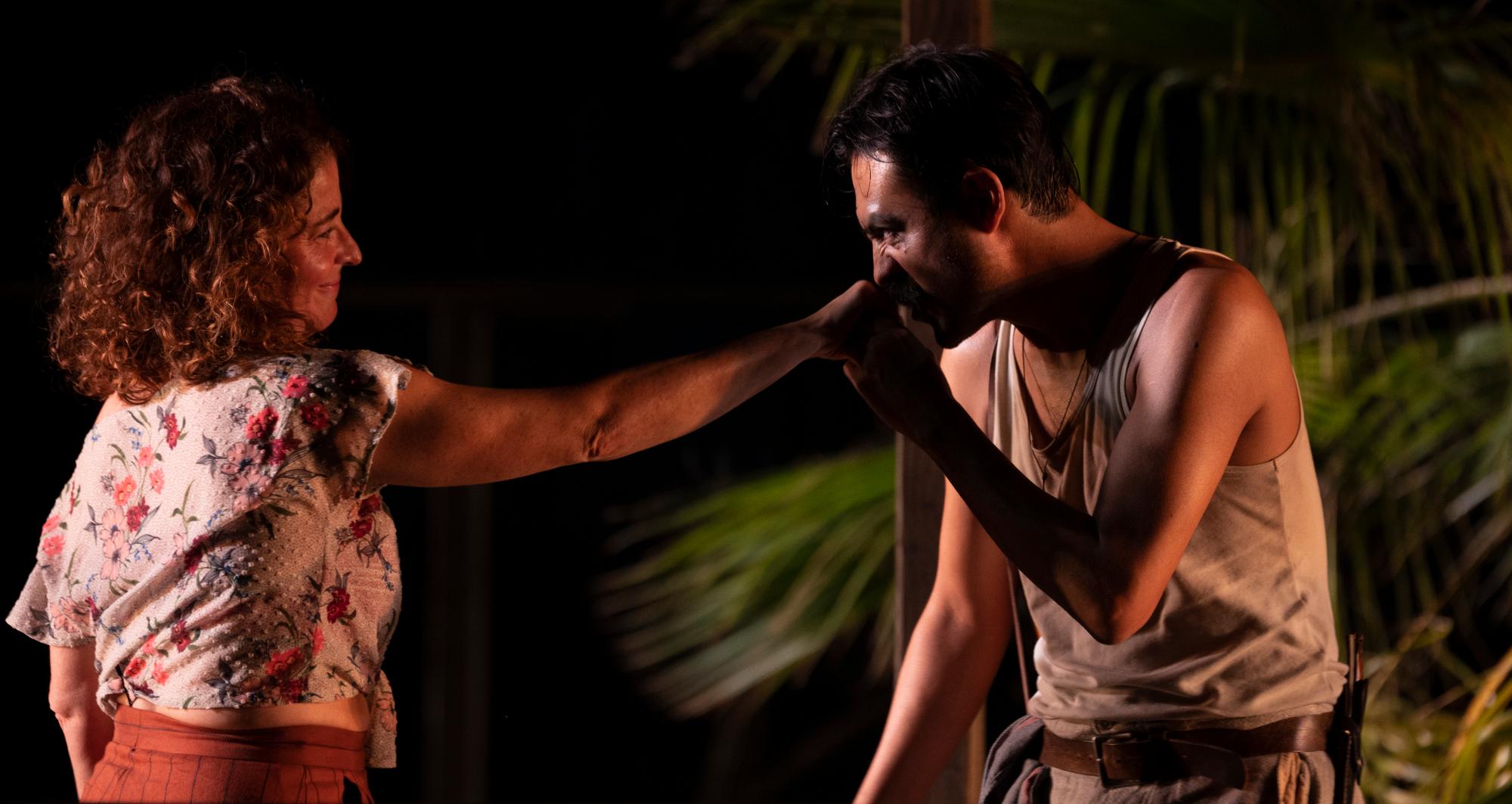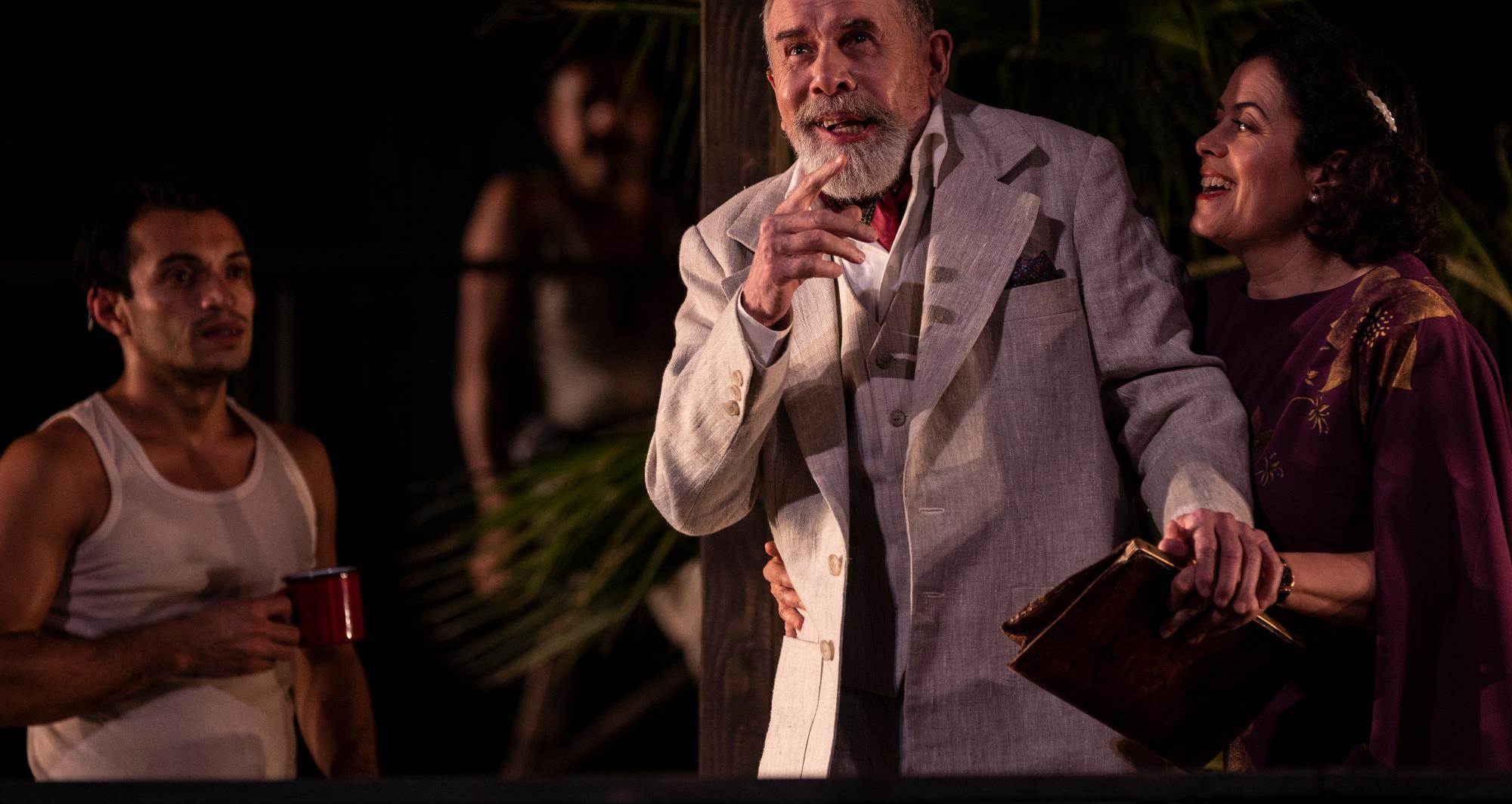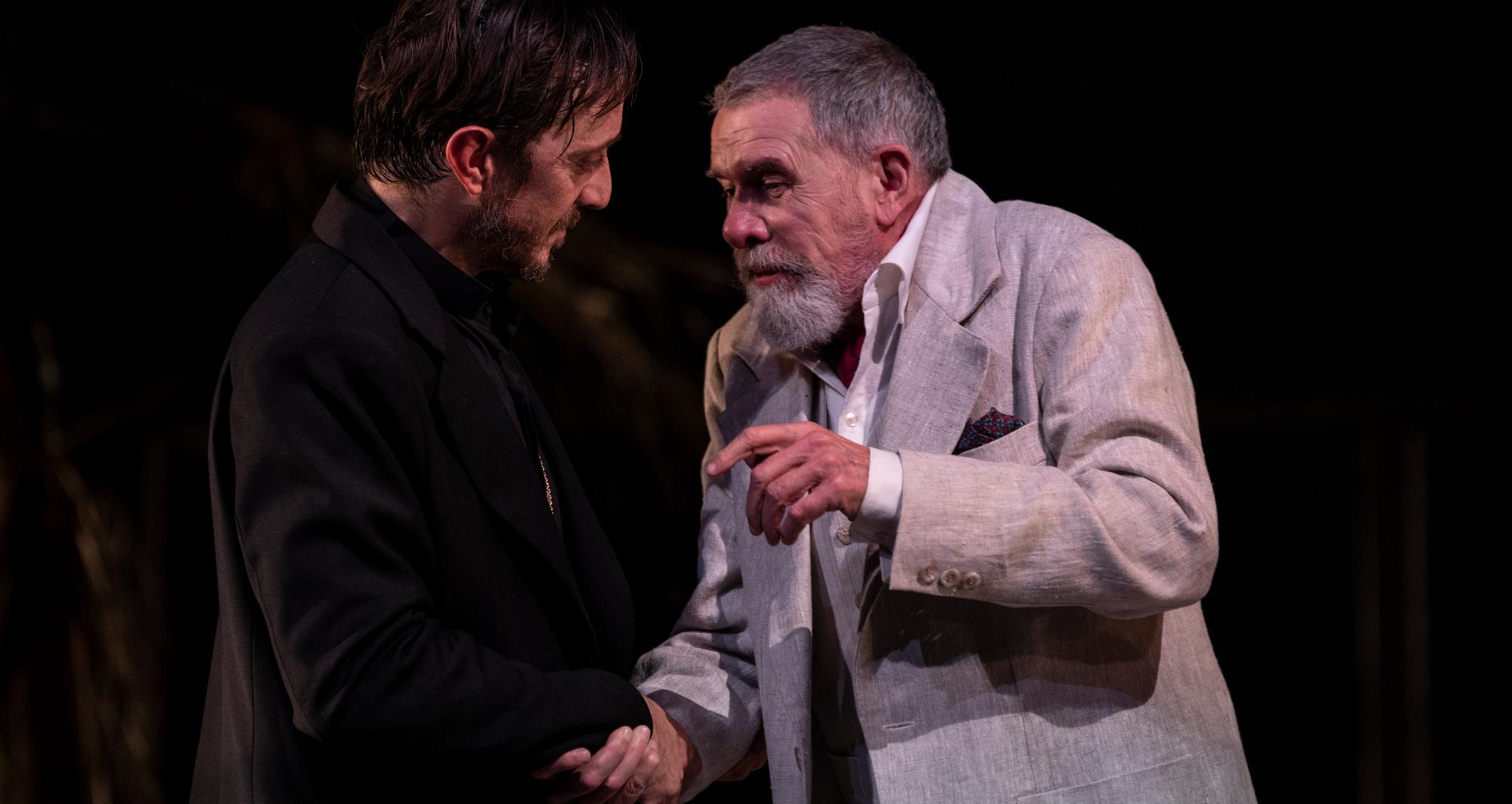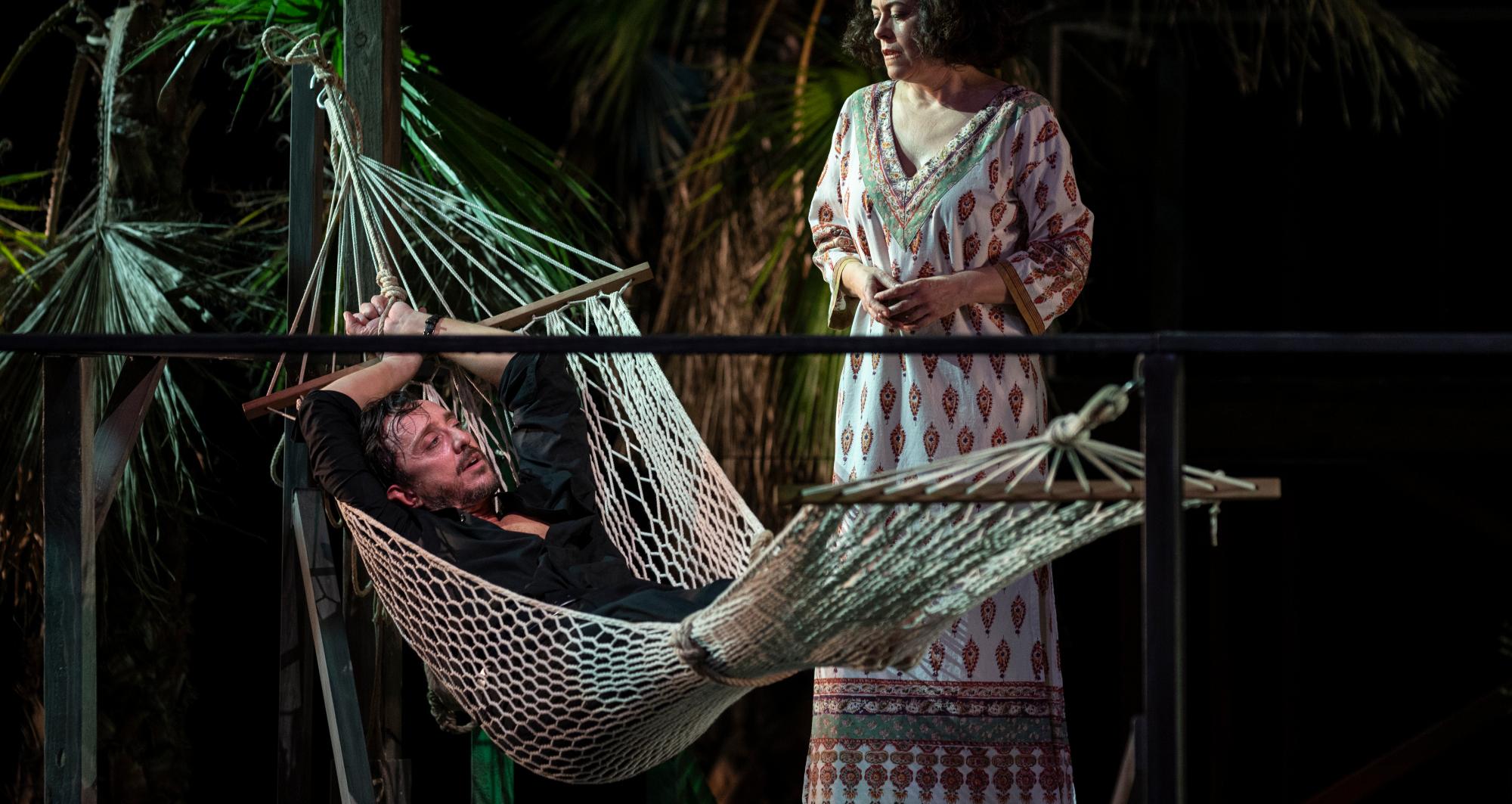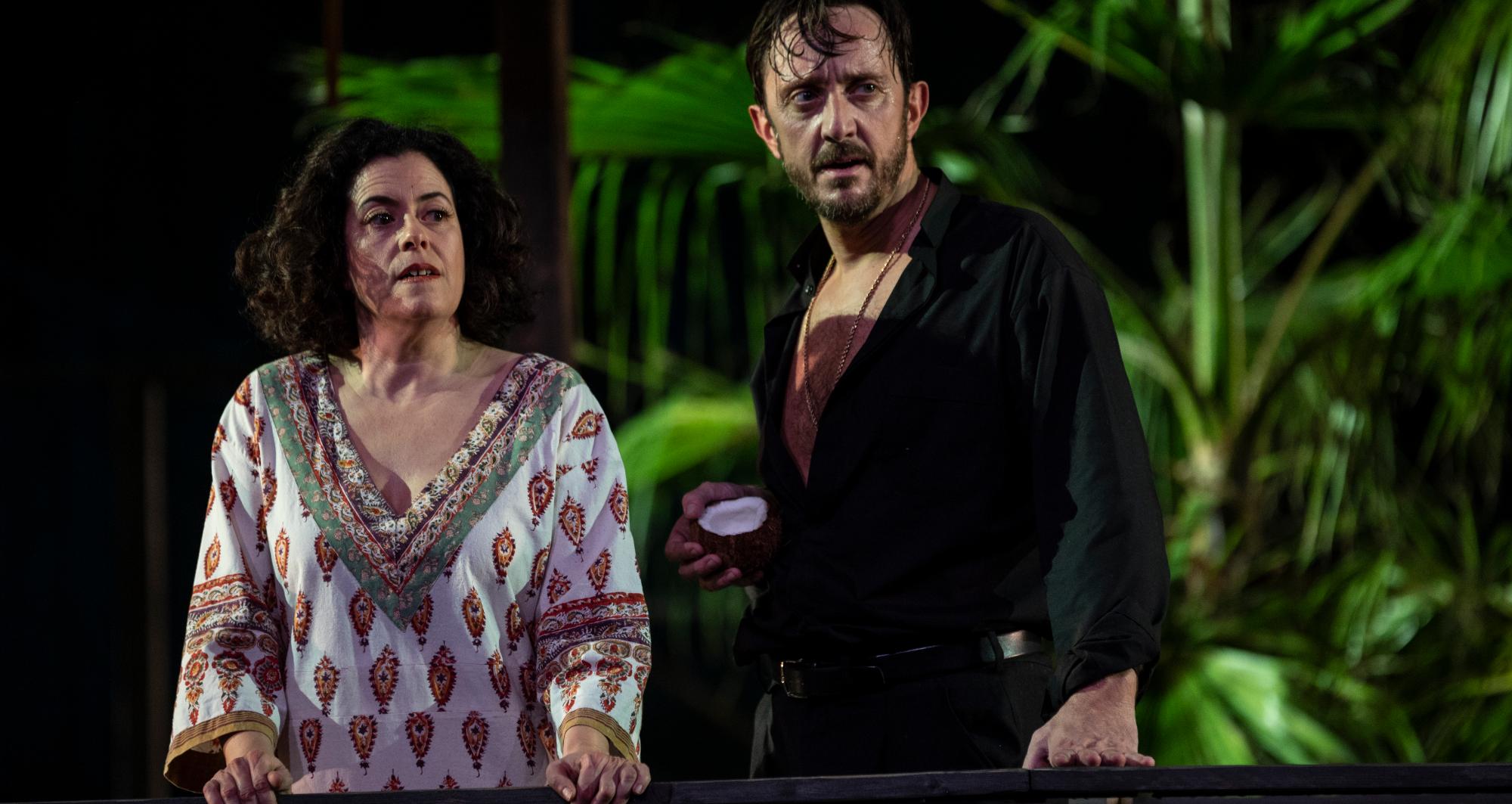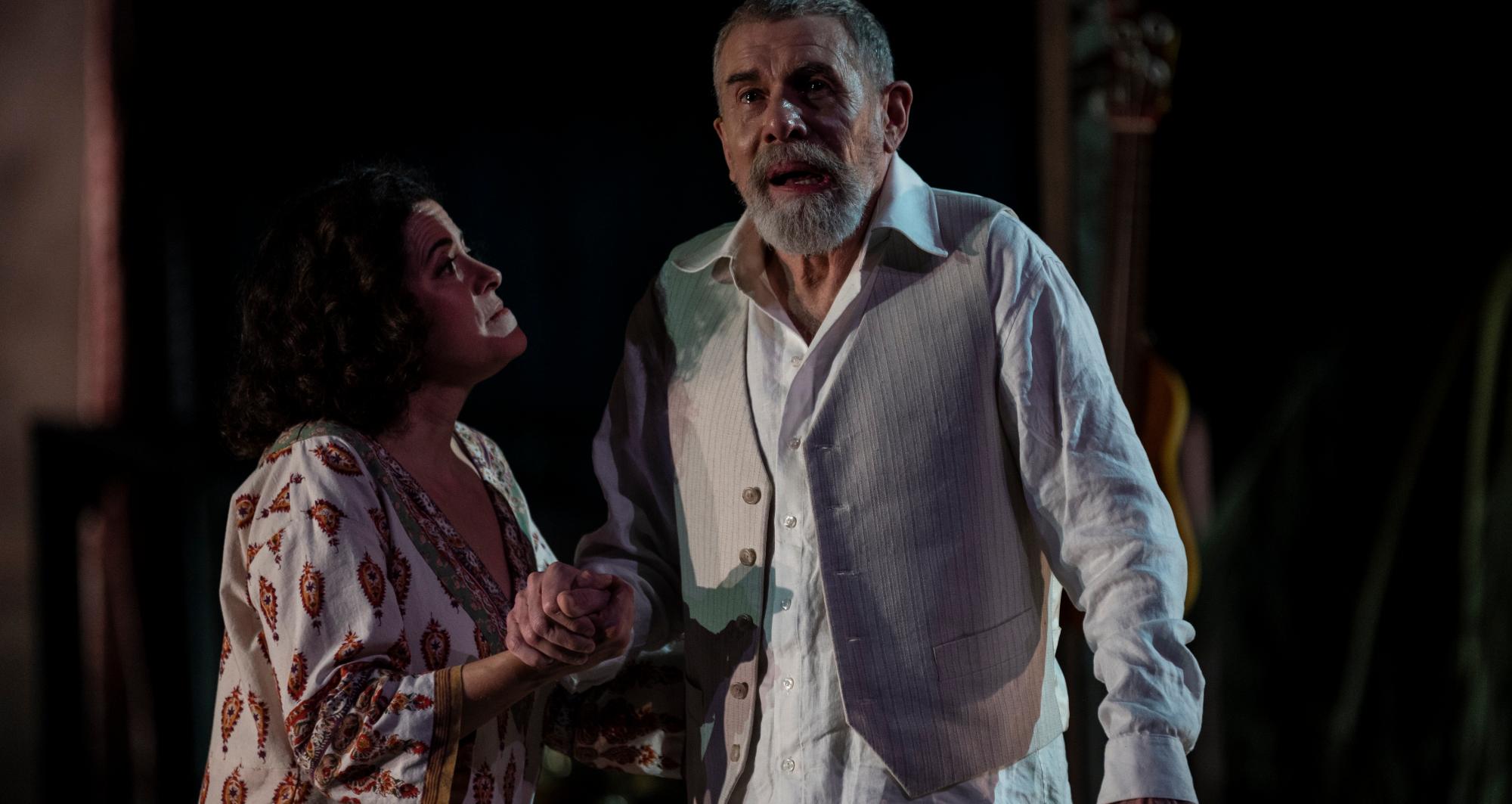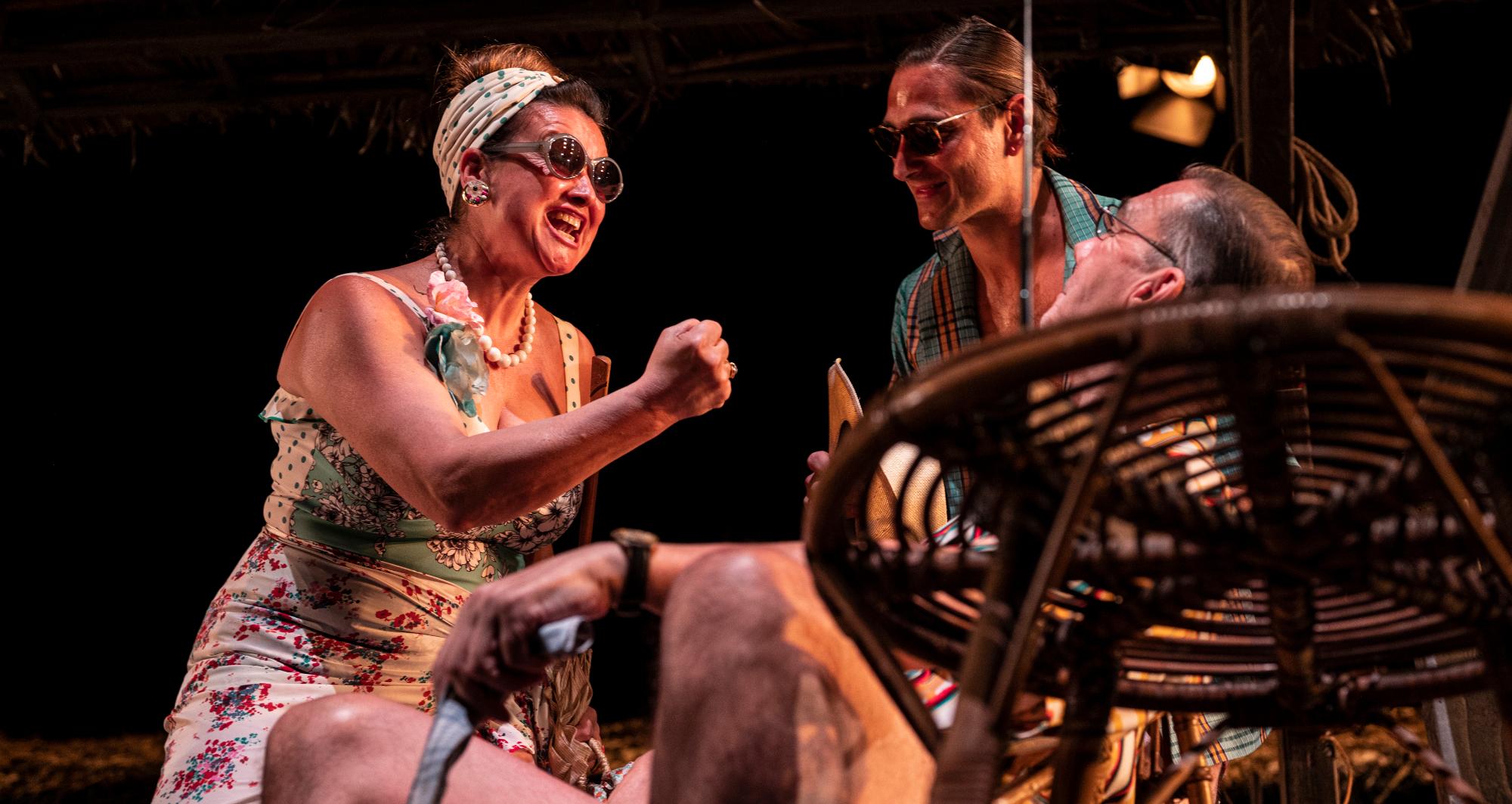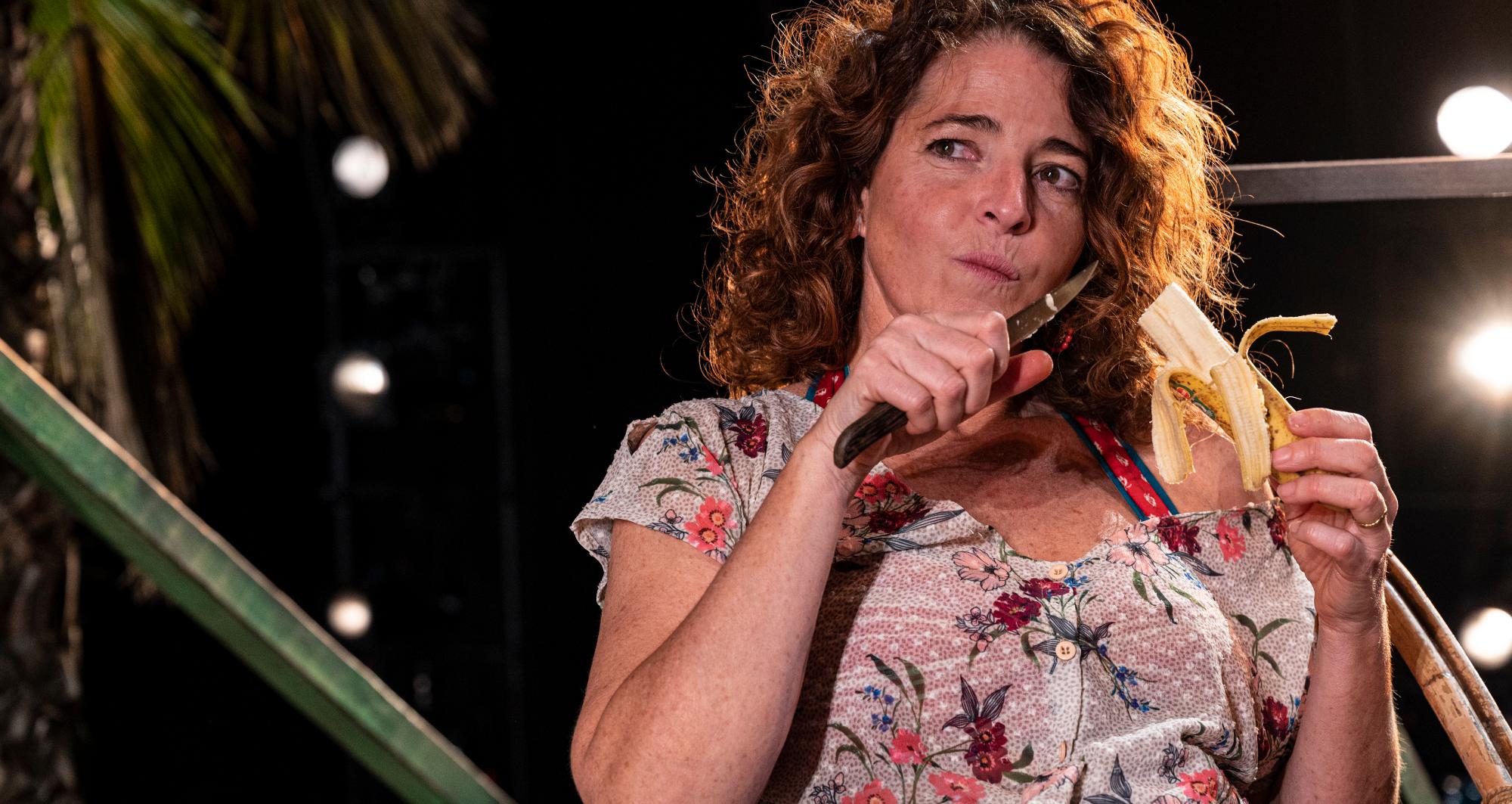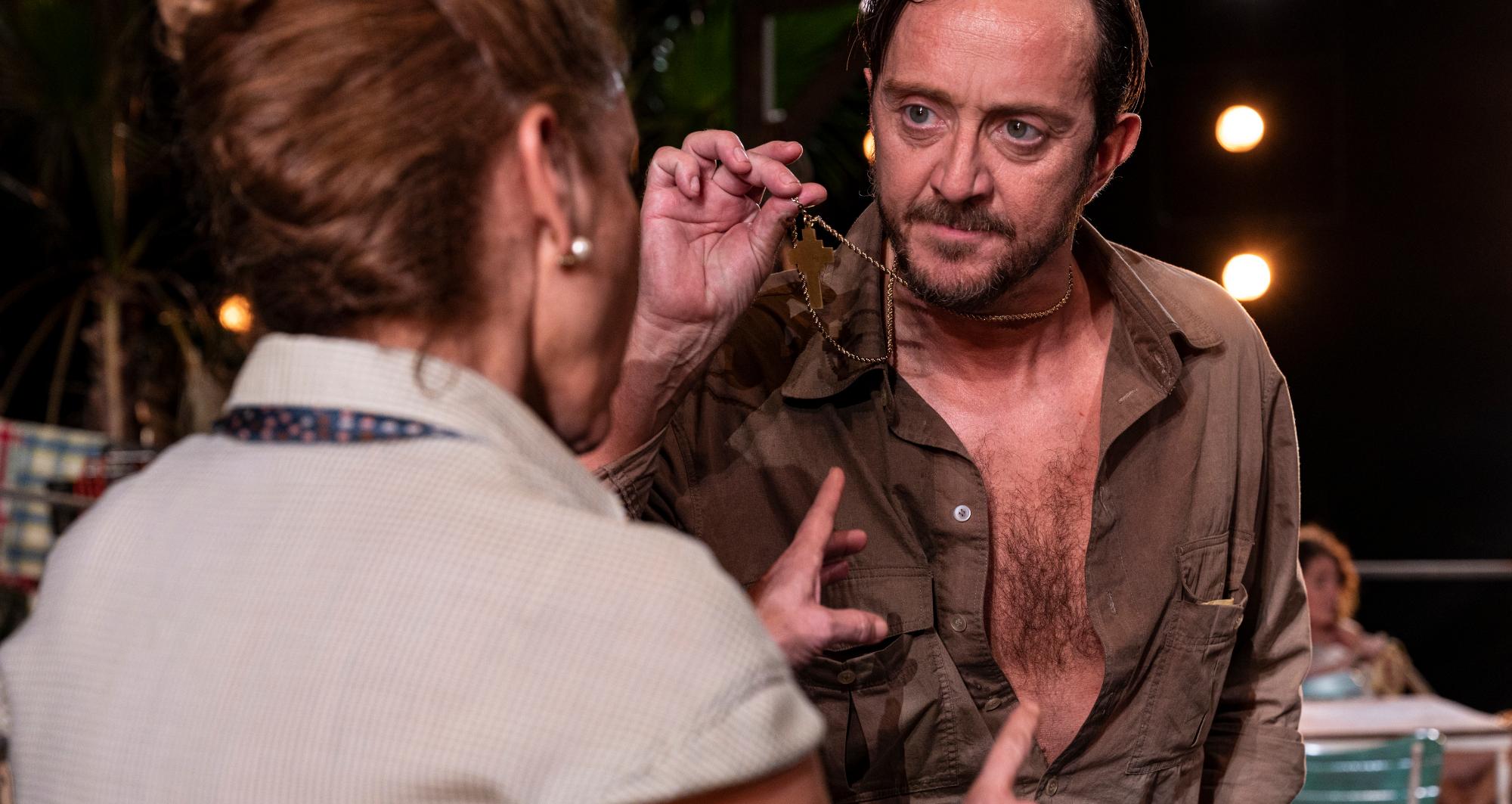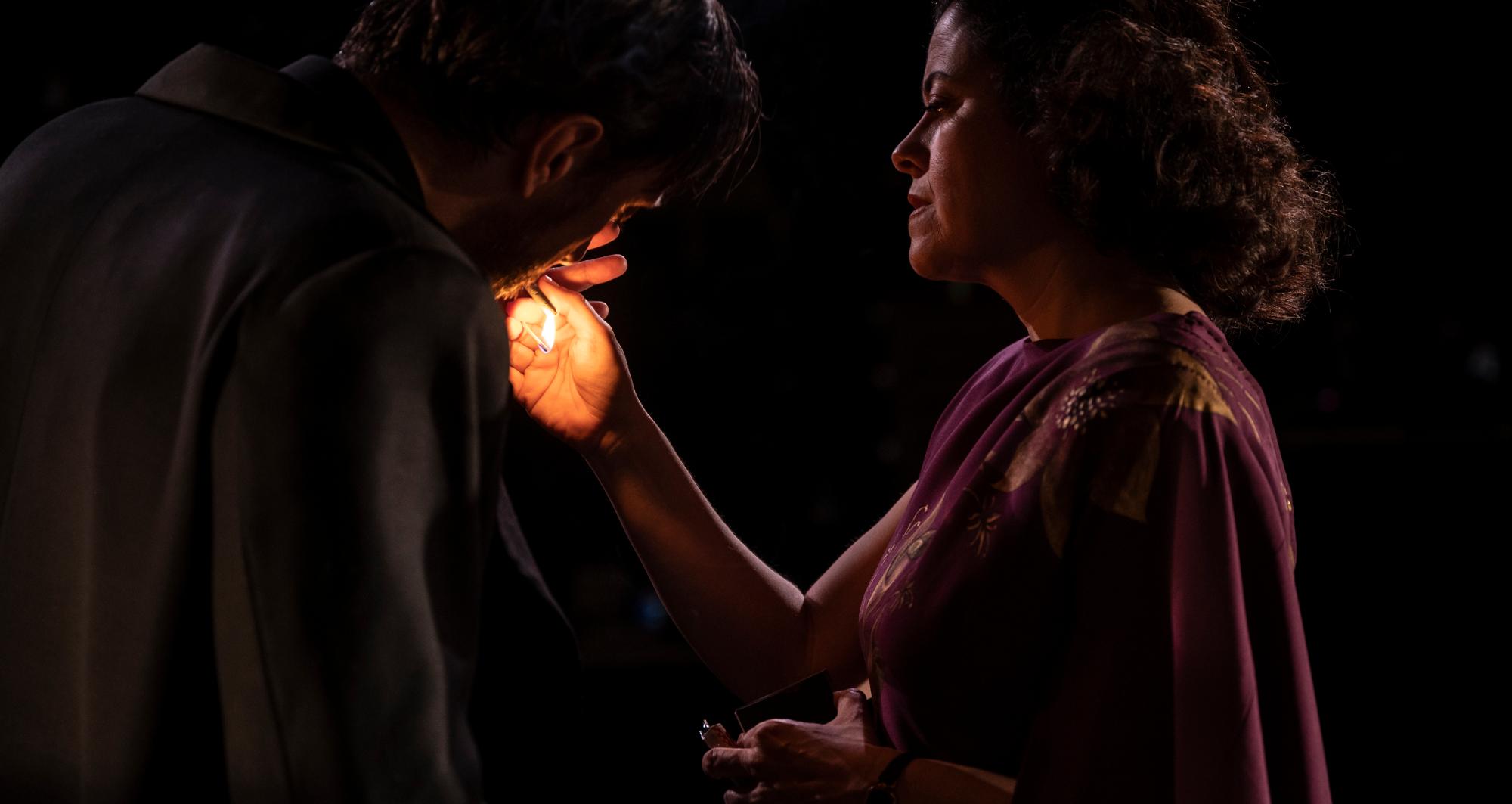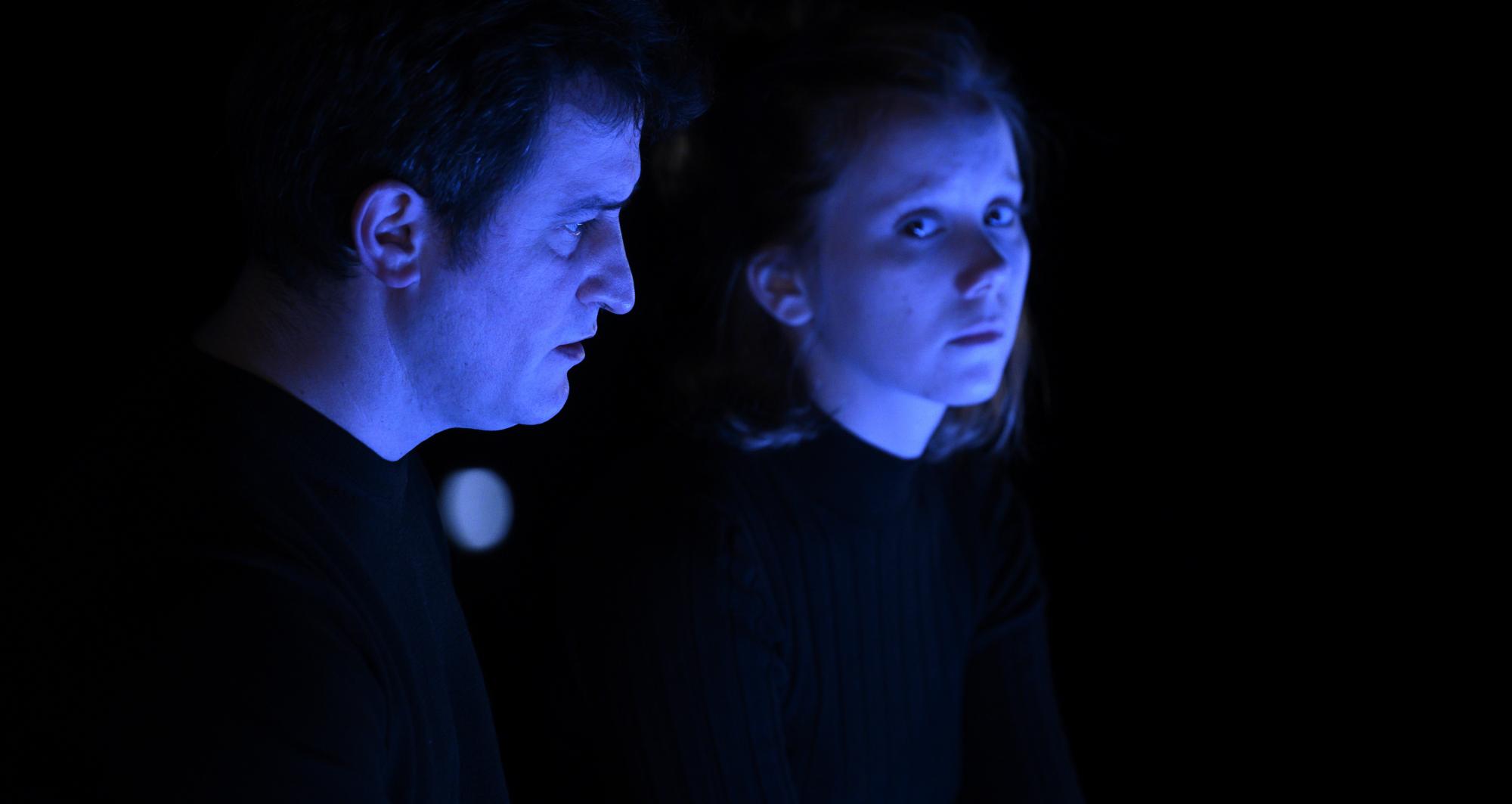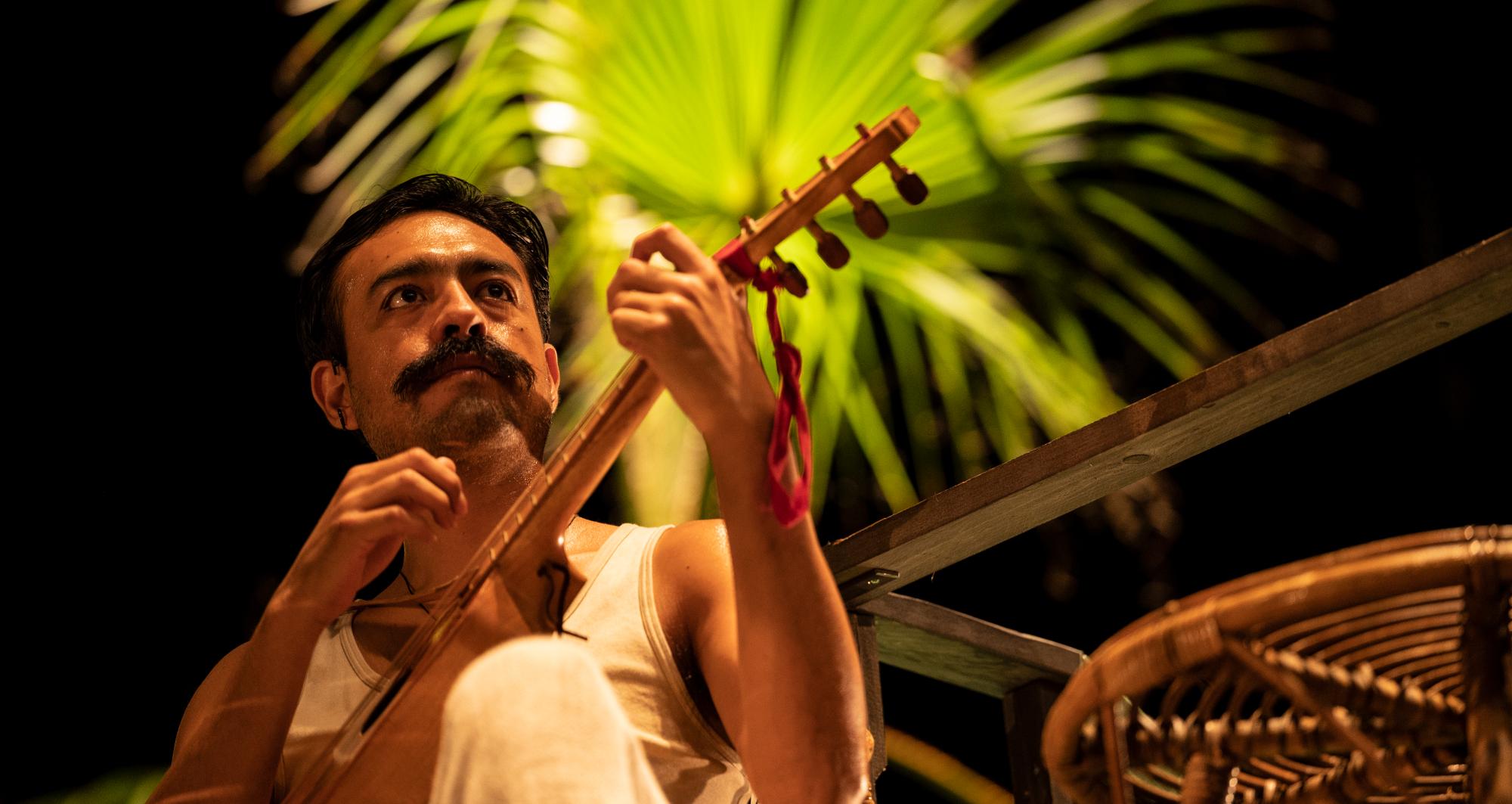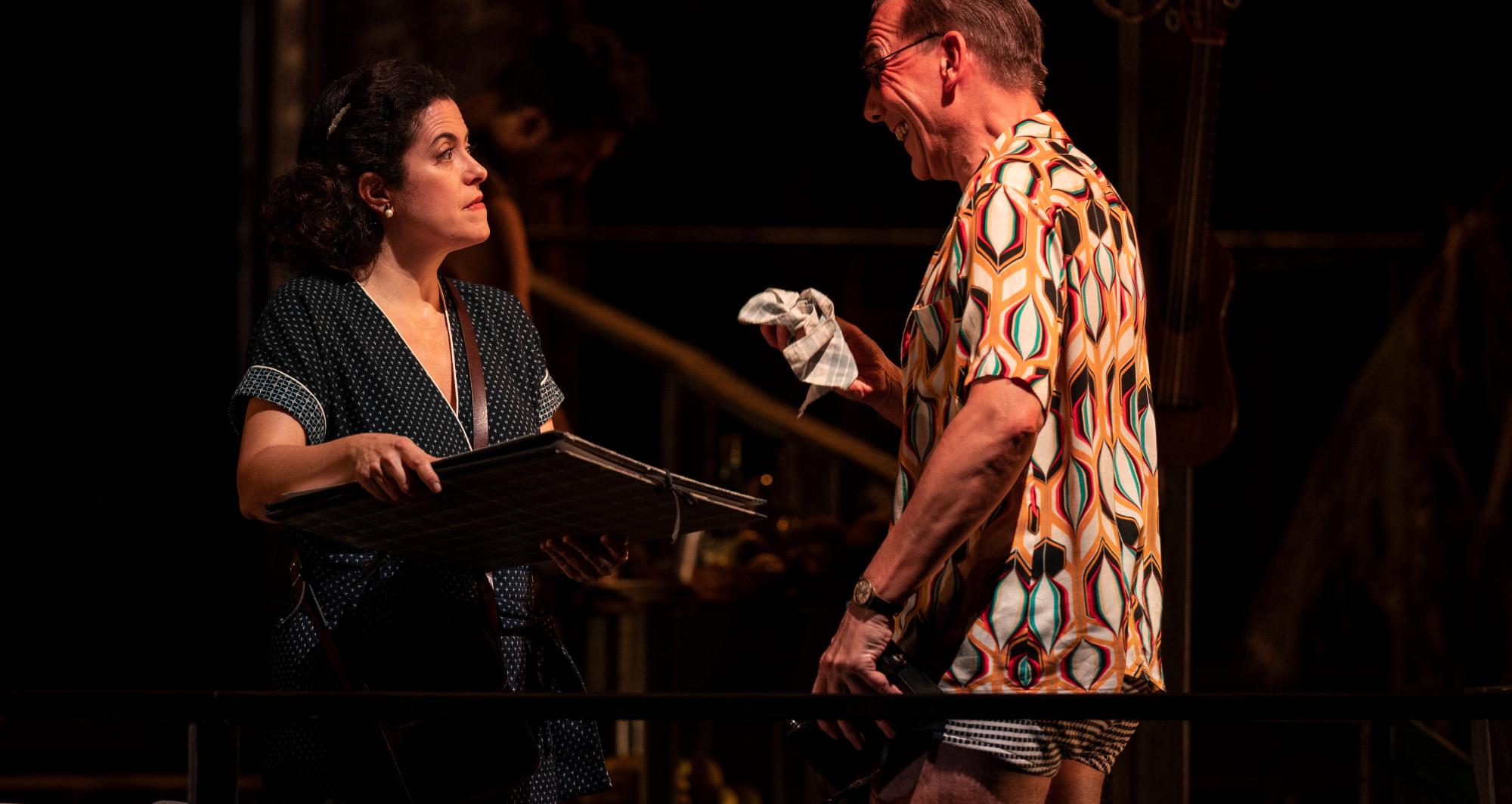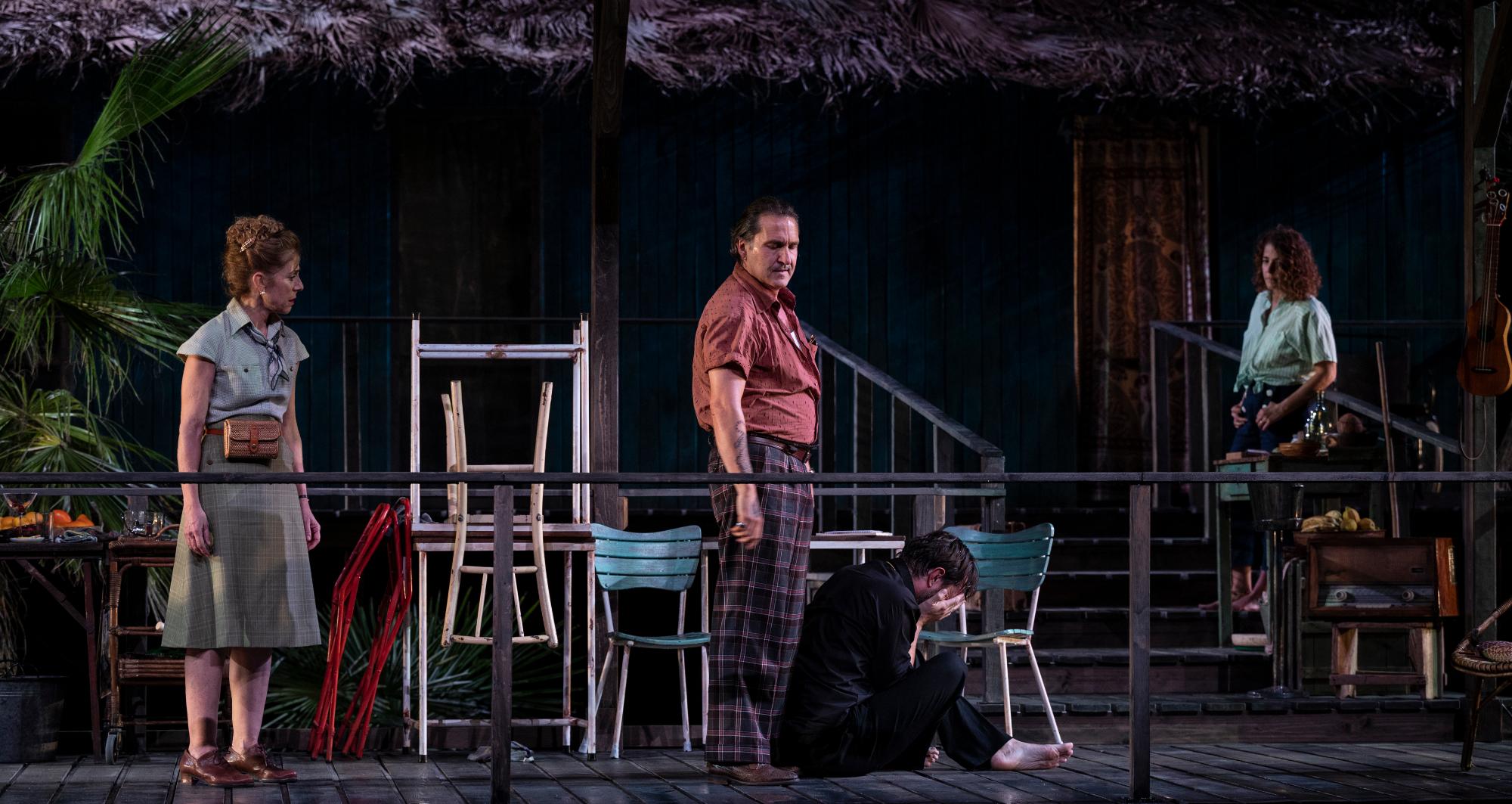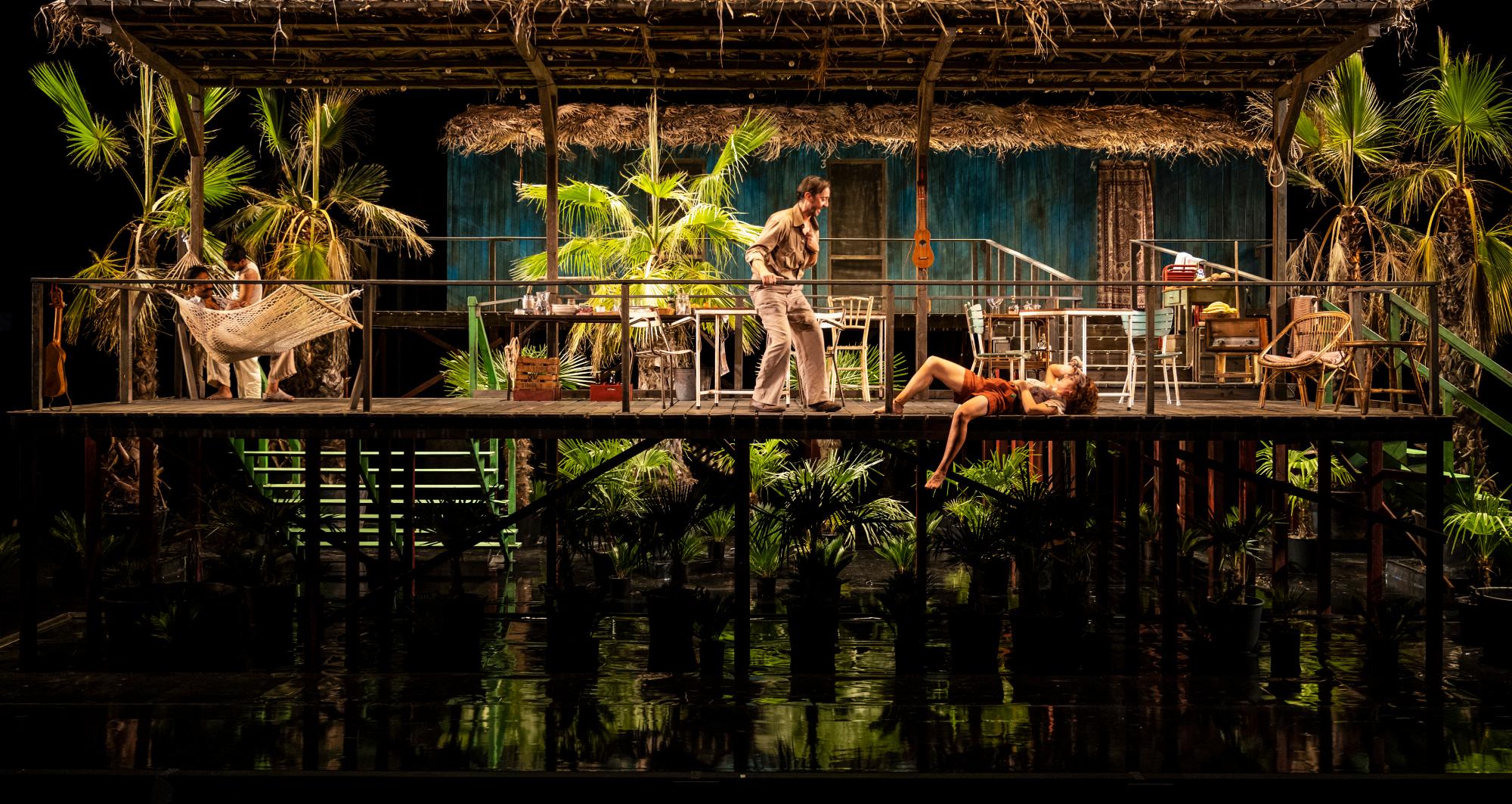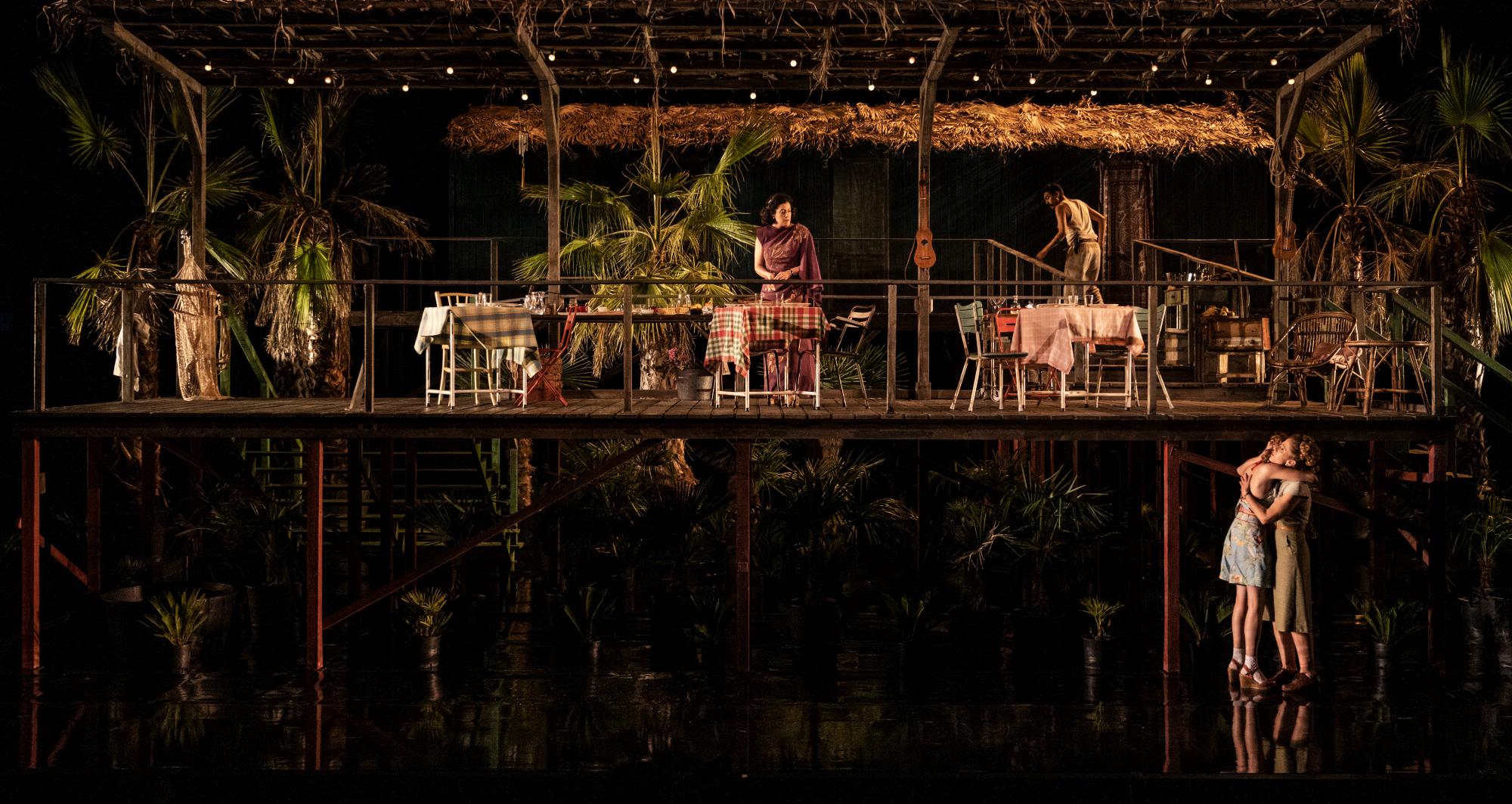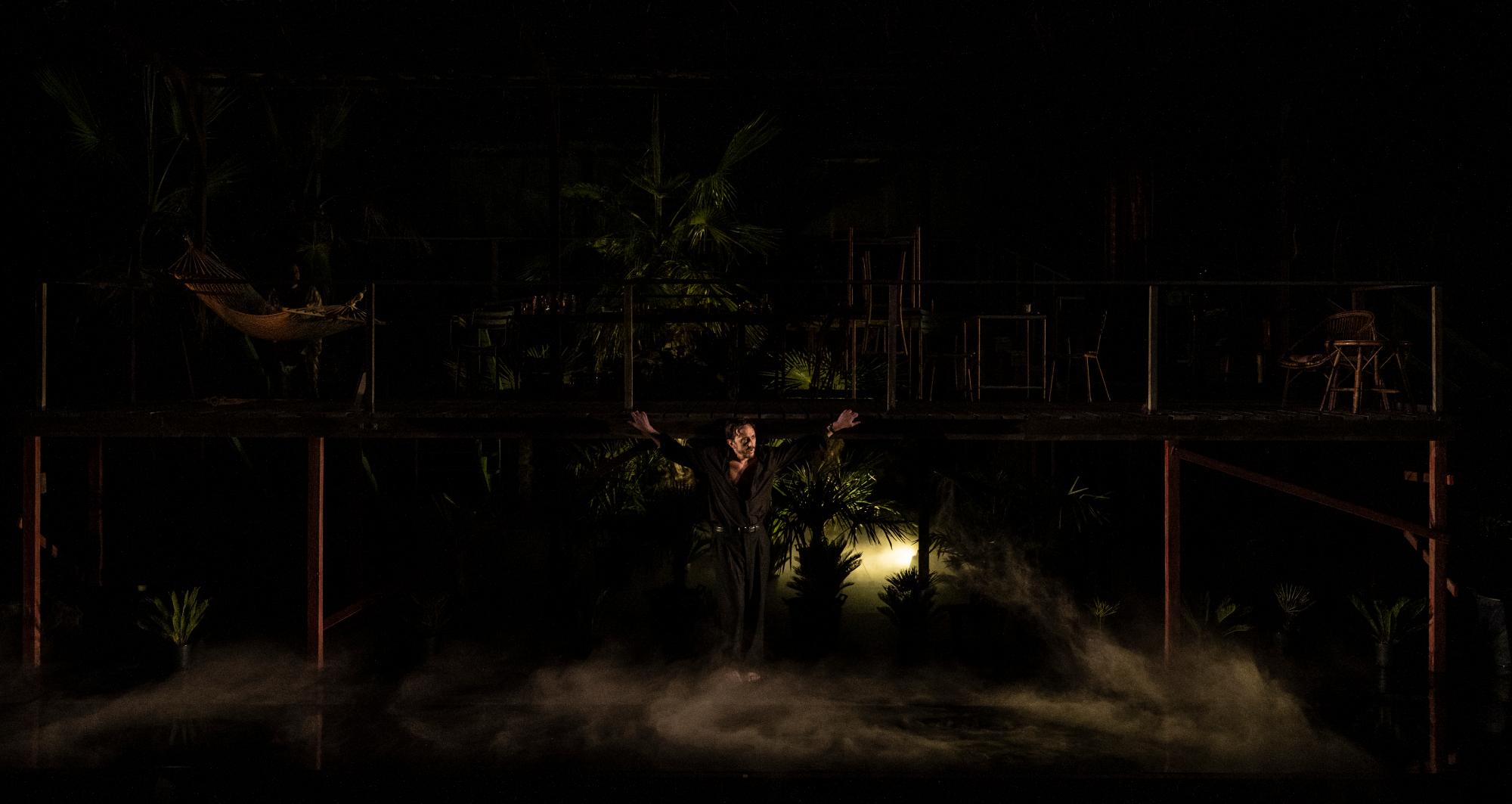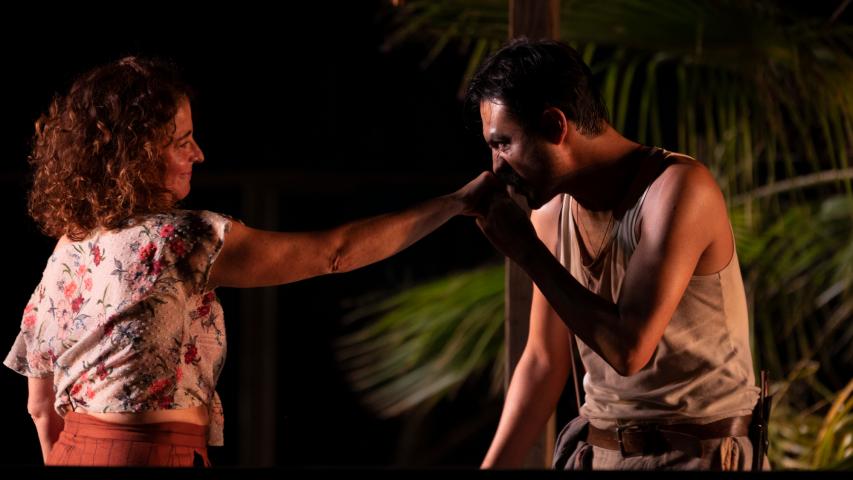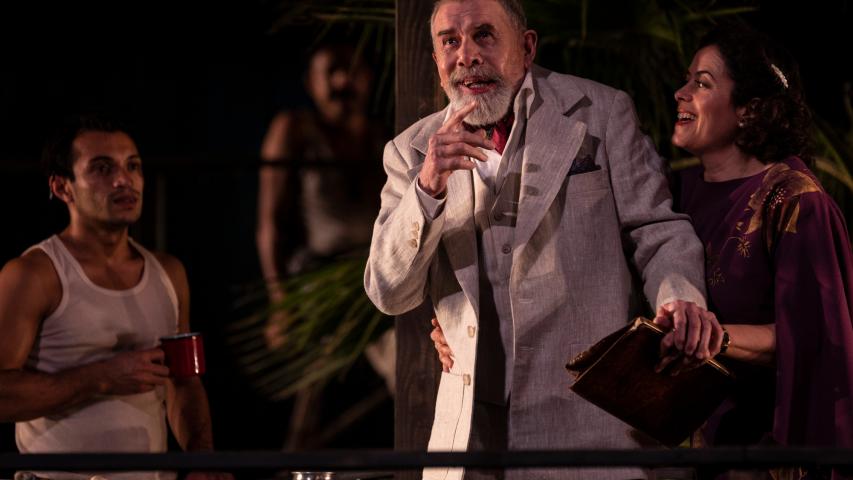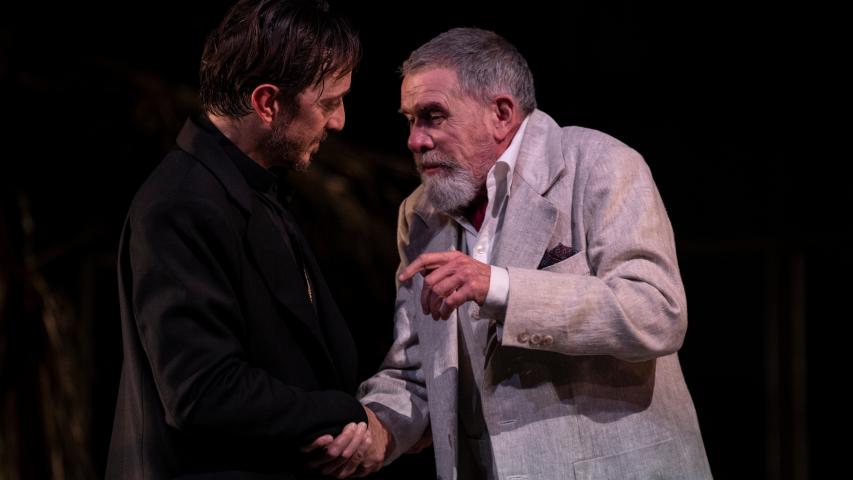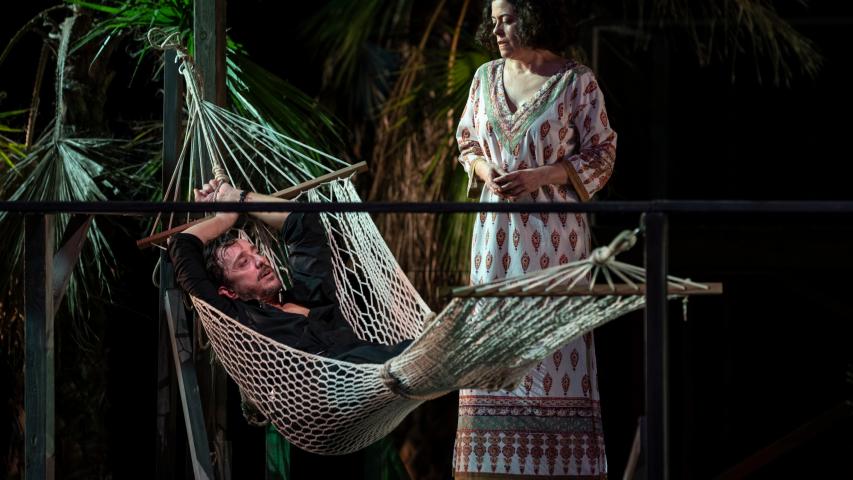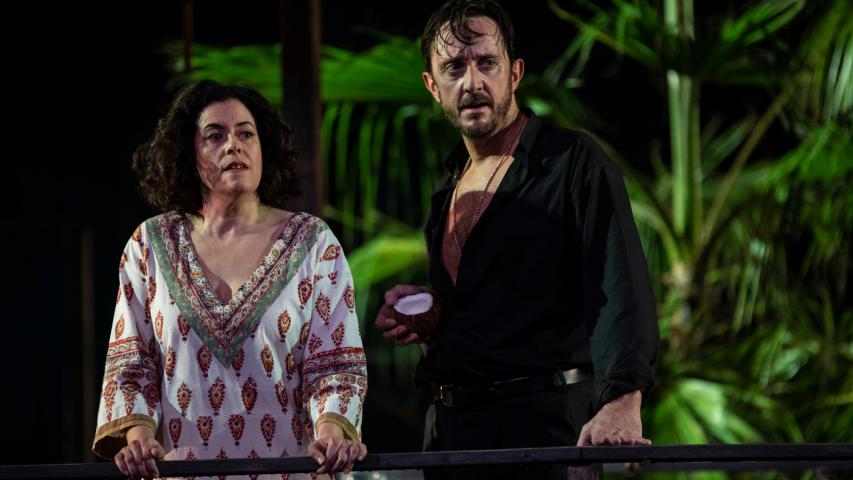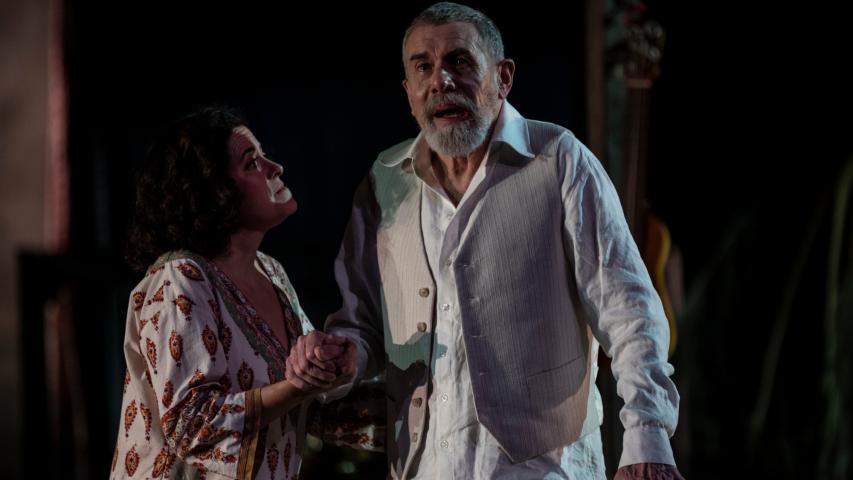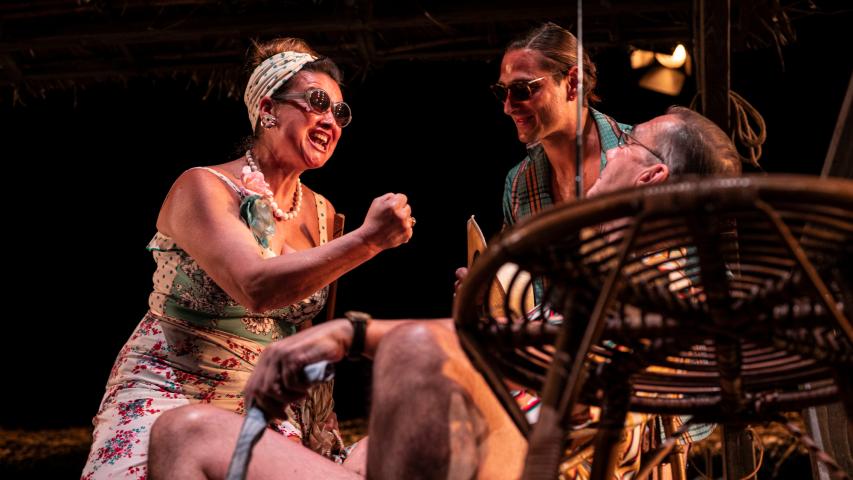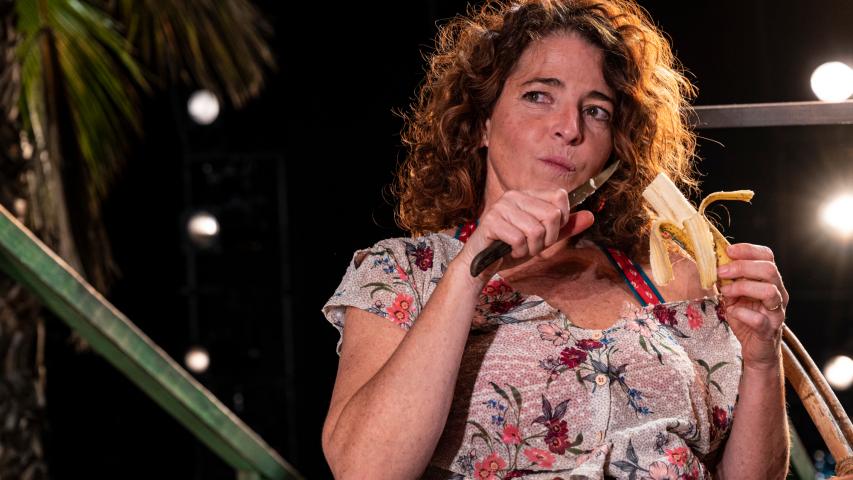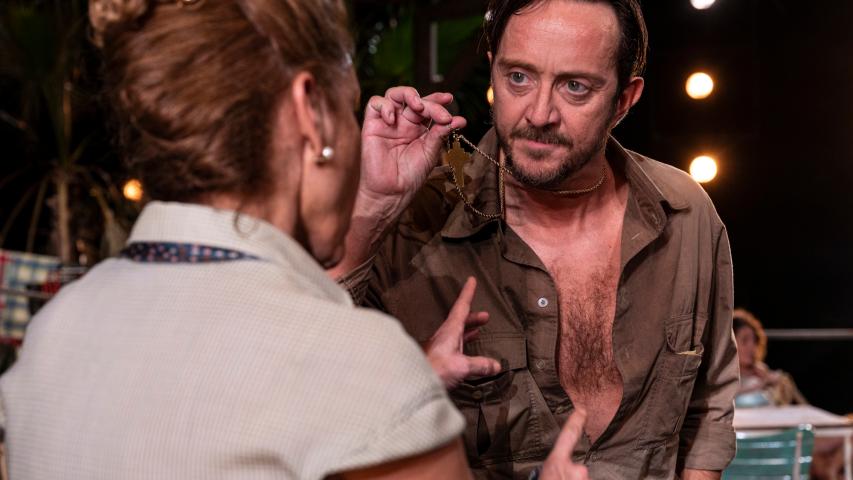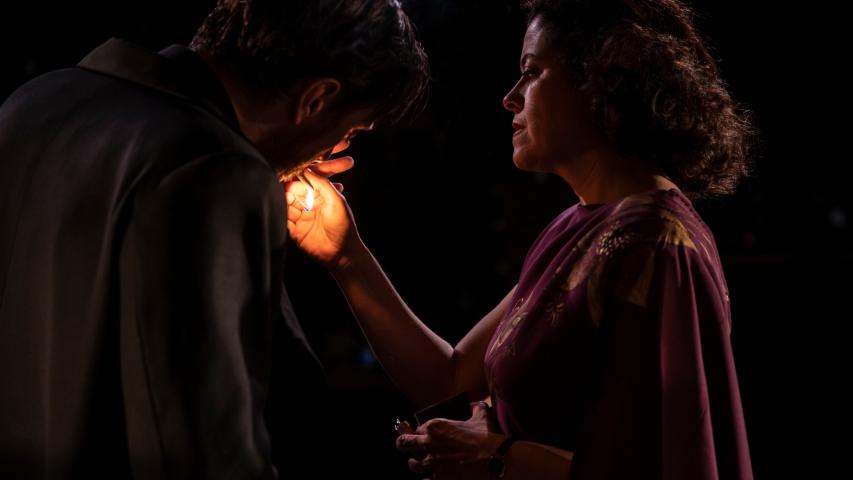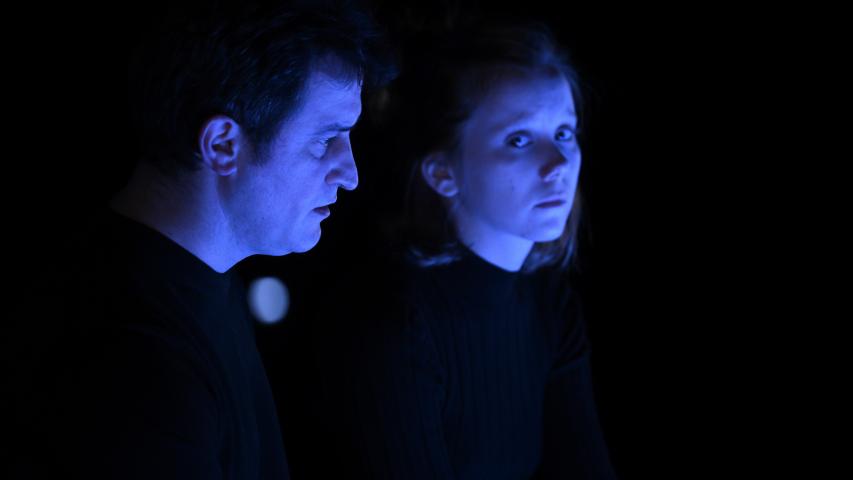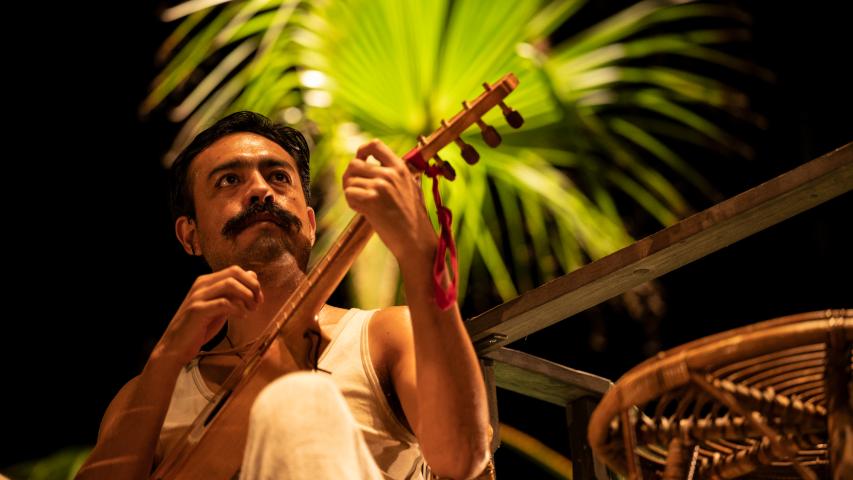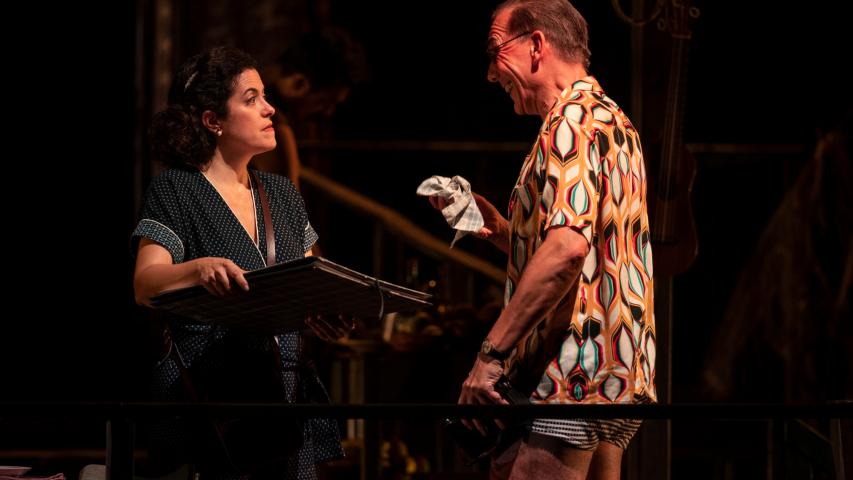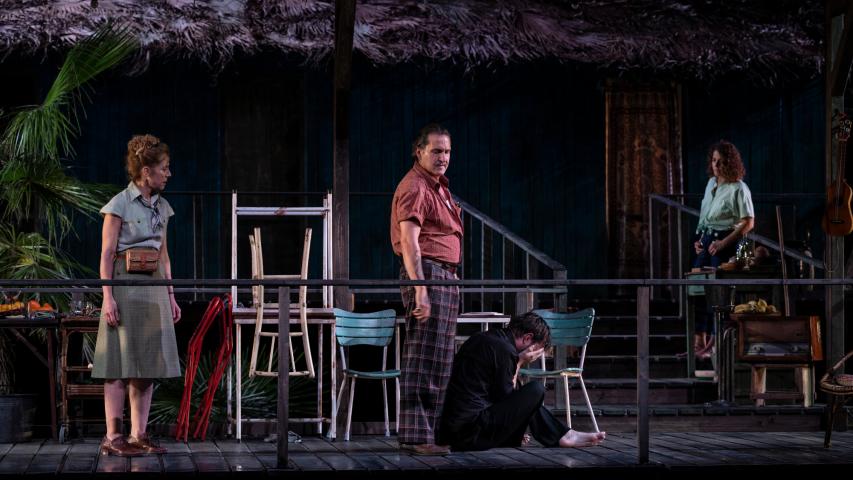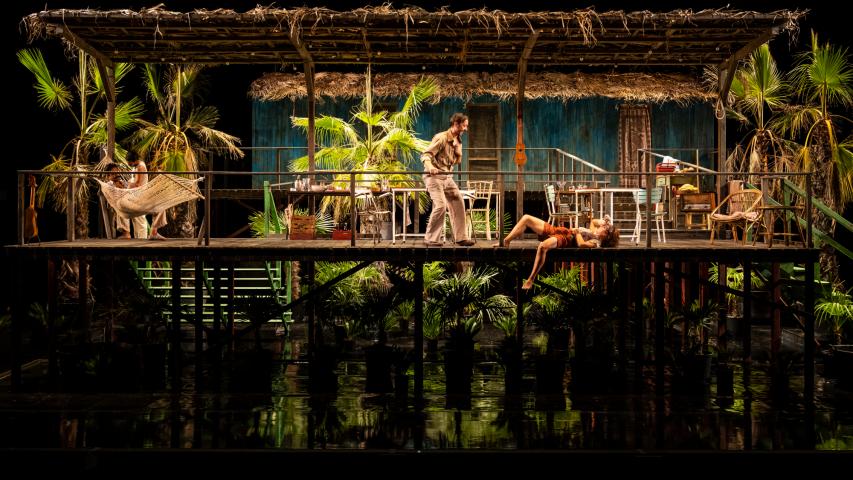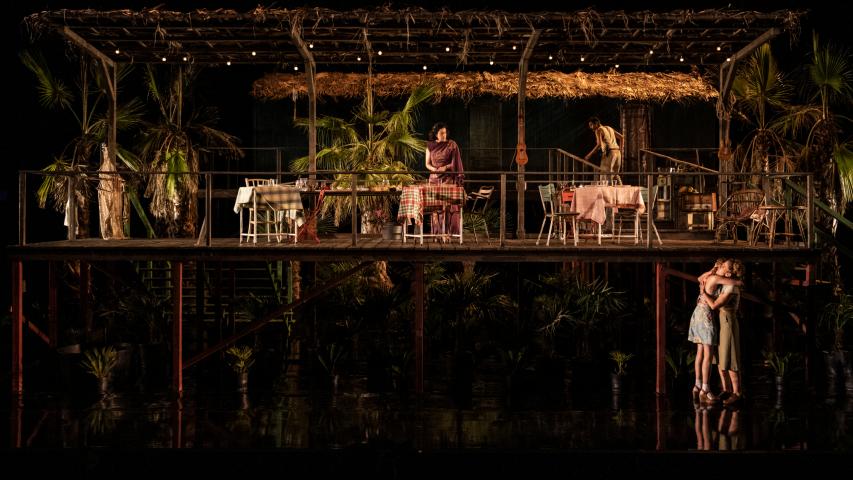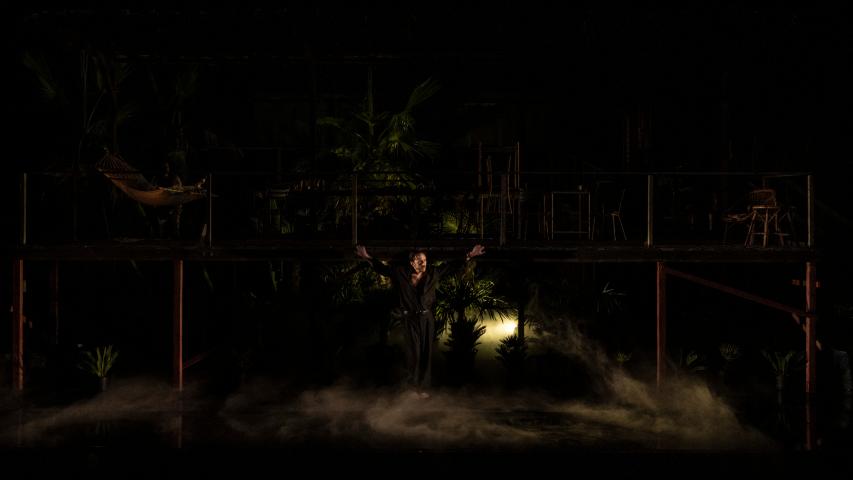Show finished
La nit de la iguana
Tennessee Williams
A hymn to beauty and to freedom
The 1940s, in a lost corner of the Pacific coast of Mexico. While groups of German tourists celebrate the Luftwaffe bombings of London in swimsuits, the former Reverend Lawrence T. Shannon, now a tour guide after being expelled from his church and having spent a time in a psychiatric clinic, reunites with a former lover who runs a small hotel.
La nit de la iguana reflects on the malaise of the globalised world, intimately threatened by the trivialisation of tourism and its encapsulated promises that lead to perpetual dissatisfaction with the lack of fruitful everyday alternatives. Also imbued with intoxicating twilight eroticism, Tennessee Williams' play emerges as a hymn to beauty and the perilous experience of freedom.
Tennesse Williams
Tennessee Williams was born in 1911 in Columbus, Mississippi, where his grandfather was the Episcopal clergyman. When his father, a travelling salesman, moved with his family to St Louis some years later, both he and his sister found it impossible to settle down to city life. He entered college during the Depression and left after a couple of years to take a clerical job in a shoe company. He stayed there for two years, spending the evenings writing. He entered the University of Iowa in 1938 and completed his course, at the same time holding a large number of part-time jobs of great diversity. He received a Rockefeller fellowship in 1940 for his play Battle of Angels, and he won the Pulitzer Prize in 1948 for A Streetcar Named Desire and in 1955 for Cat on a Hot Tin Roof. Other plays include Summer and Smoke, The Rose Tattoo, Camino Real, Baby Doll, The Glass Menagerie, Orpheus Descending, Suddenly Last Summer, The Night of the Iguana, Sweet Bird of Youth, and The Two-Character Play. Tennessee Williams died in 1983.
University of the South
The University of the South, a national ranked liberal arts college and Episcopal seminary, is the beneficiary of the Tennessee Williams’ estate, including the copyrights to all his works. This gift was made as a memorial to Williams’ grandfather, the Reverend Walter E. Dakin, who studied at the University’s seminary in 1895.
The Walter E. Dakin Memorial Fund is used to support the Sewanee Writers’ Conference, the Sewanee Young Writers’ Conference, and the School of Letters. The Fund also supports scholarships for students who wish to pursue creative writing and fellowships which are granted annually to budding playwrights or authors. Those fellows include Ann Patchett, Claire Messud, Tony Early, and Mark Richard. The Tennessee Williams Center houses the University’s theater department, and a portion of the Fund supports the department and its theatrical productions.
- Show included in the season tickets.
- Book for 3 € with the text of Justícia, by Guillem Clua, for sale in the lobby while the show is on the poster.
- This play in included in the project Club de lectura "Llegir el teatre" (reading theatre clubs) of TNC/Biblioteques públiques de Catalunya.
- I also go to the TNC. 21/02/21 a playful activity for children while the adults watch the show. SOLD OUT!
Autoria
Tennessee Williams
Traducció i direcció
Carlota Subirós
Dramaturgista
Ferran Dordal i Lalueza
Amb
Paul Berrondo, Joan Carreras, Màrcia Cisteró, Ricardo Cornelius, Antònia Jaume, Paula Jornet, Wanja Manuel Kahlert, Nora Navas, Hans Richter, Juan Andrés Ríos, Claudia Schneider i Lluís Soler
Set design
Max Glaenzel
Costumes and Characterization
Marta Rafa Serra
Lighting
Mingo Albir
Sound
Damien Bazin
Make-up and hairdressing
Anna Rosillo
Costume manufacturing
Goretti Puente
Choreographic movement
Laia Duran
Assistant Director
Raquel Cors
Set design assistant
Josep Iglesias
Costumes assistant
Marc Udina
Musical advice
Joan Garriga
Production
Teatre Nacional de Catalunya
The iguana nit is courtesy of the special arrangement with the University of the South, Sewanee, Tennessee
Acknowledgments
Albert Arribas
Sala Beckett
Yadur González
Gian Aimi Duran
Raxá De Castilla
Ainara Munt
Míriam Compte
Mentirijilla Tattoo
Prices
-50% Young, unemployed and people with disabilities: 14,50 €General price: 29 €
Abona’t ara al TNC! Venda d’entrades generals a partir de l'1 de juliol: 24,50 €
Schedules
TimesWednesday 7 pm
Thursday 7 pm
Friday 7 pm
Saturday 7 pm
Sunday 6 pm
Gender: Theater
2 h 5 min
16 years and above
